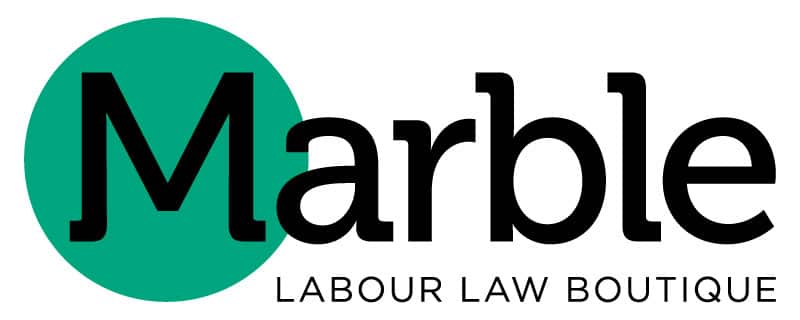06 Feb What will change in labour law land in 2023?
In 2023 there will again be some labour law changes of interest to employers. A brief overview of the most important new rules and legislative proposals.
Sickness/incapacity for work
- The opinion of the company doctor will be leading in the review of the reintegration report by the UWV. Thus, the UWV insurance doctor no longer assesses the company doctor’s advice on the employee’s unsuitability. This bill was initiated years ago, but its consideration has always been postponed. The earliest it will be enforceable by the UWV is 1 July 2023.
- In practice, the waiting period for a WIA claim assessment has increased considerably. As a result, the UWV is providing many more advances to employees who may be eligible for WIA benefits. Employees may run into financial problems if those advances have to be repaid. For this reason, the temporary measure waiving the advances will be extended until 1 January 2024.
- From 1 July 2023, the sick pay continuation period for AOW-eligible employees will be reduced from 13 to 6 weeks. The period of the notice ban and the maximum benefit period under the Sickness Benefits Act will also go from 13 to 6 weeks. For AOW-eligible employees who were already sick before 1 July 2023, the 13-week period will continue to apply.
Law work where you want?
On 5 July 2022, the proposal for the Work Where You Want Act was passed by the House of Representatives. The bill has been before the Senate for some time, which has raised many critical questions. Should the law come into force, it would amend the Flexible Working Act (Wfw) in the sense that it would make it more difficult for employers to reject an employee’s request for a change of workplace. However, it is still not intended to force employers to allow an employee to work full-time from home or from a holiday address; according to the initiators, it is about a ‘balance’ between working in the office and working from home. We’ll have to wait for the Senate.
Whistleblowers Protection Act
- The Whistleblowers Protection Act was adopted by the Senate on 24 January 2023. The law was adopted to implement the European Whistleblowers Directive and replaces the House of Whistleblowers Act. By the end of 2023, employers will have to comply with stricter requirements that will apply to the internal reporting procedure, direct external reporting will become possible, and the prohibition of discrimination and the circle of protected persons will be expanded. The aim of the law is to improve the position of whistleblowers.
Employee CO2 emissions tracking at companies with >100 employees
- Companies with >100 employees will have to start tracking their employees’ CO2 emissions from commuting and business travel. This measure is expected to take effect from 1 July 2023. Employers will then be required to submit data annually by 30 June for the previous calendar year regarding commuting and all business trips for which the employee receives financial compensation or a means of transport has been made available (namely: the number of kilometres, the means of transport used and the fuel type).
 This scheme is the result of the Climate Agreement as an elaboration of which the government has a target to reduce CO2 emissions from commuting by one megaton, or 25%, by 2030. A collective emissions cap applies until 2025, but if total CO2 emissions in 2025 exceed the set cap, mandatory standards for individual employers will apply. The goal is that by 2050, everything on the road will be completely tailpipe-free.
This scheme is the result of the Climate Agreement as an elaboration of which the government has a target to reduce CO2 emissions from commuting by one megaton, or 25%, by 2030. A collective emissions cap applies until 2025, but if total CO2 emissions in 2025 exceed the set cap, mandatory standards for individual employers will apply. The goal is that by 2050, everything on the road will be completely tailpipe-free.
Equal Opportunities in Recruitment and Selection Act supervision
- On 10 December 2020, the Bill on Monitoring Equal Opportunities in Recruitment and Selection was submitted to the House of Representatives. The aim is to amend the Working Conditions Act (Arbowet) and Workforce Allocation by Intermediaries Act (Waadi) to introduce a compulsory working method aimed at creating equal opportunities in the process of recruitment and selection. Employers with ≥25 employees must document this working method in writing. In 2022, an obligation to report discriminatory requests at employment agencies was added to the proposal. Failure to comply will result in a fine, which will also be made public. The proposal is still pending in the Lower House.
Adjusted amounts transitional allowance, minimum wage, transitional allowance, state pension, travel expenses, etc.
- In view of the huge inflation, it has been decided – for the first time since the minimum wage was introduced in 1969 – to raise the minimum wage by a special 8.05%. In addition, as usual, it will be indexed every six months, as a result of which the minimum wage will have increased by 10.15% by 1 January 2023. There is no statutory hourly minimum wage in the Netherlands; it depends on how many hours a full-time working week amounts to in an organisation (usually 36, 38 or 40).
- Minimum wage (from 21 years old): EUR 1,934.40 gross per month; EUR 446.40 per week and EUR 89.28 per day. For a 40-hour working week, that works out to EUR 11.16 per hour.
- Maximum daily wage (for the purposes of ZW, WW, WIA, WAZO, etc.): EUR 256.54 gross per day; maximum monthly wage EUR 5,579.66 gross.
- Maximum transitional compensation: EUR 89,000 gross (unless an annual salary is higher).
- State pension age: 66 years and 10 months.
- The untaxed home working allowance goes up from a maximum of EUR 2 per day to a maximum of EUR 2.15 per day.
- Since 2006, the travel allowance that employers can pay employees untaxed is EUR 0.19 per kilometre. From 1 January 2023, it will be increased to EUR 0.21 and from 1 January 2024 to EUR 0.22 per kilometre.
Any questions? Please feel free to contact Marble: info@mllb.nl


